
Leading the Way in Trusted Medical Travel Services.
1.3 Lakh+ Satisfied Customers
4.7
Treatment Plan and quote within 24 hours
Pre Arrival Services: Hospital and doctor recommendations, 24x7 medical concierge, doctor consultations, treatment cost estimates.
Arrival Services: Airport pickup, hospitalization assistance, accommodation arrangement, and language translator (if required).
Post Procedure Services: Recuperation support, follow-up consultations, and coordination with referral doctors abroad.
Ongoing Support: Continuous communication, health tracking, satisfaction surveys, and long-term wellness assistance.

Gurugram
Gurugram
New Delhi
Delhi
Delhi
Gurugram
Delhi
New Delhi, Dwarka
New Delhi
MD , DNB , CST
Dr. Aabha Nagral is one of India’s esteemed Hepatologist (Liver specialists). She has been successfully treating Liver disease patients all over the world with a rich experience of more than 30 years. She is also a renowned Gastroenterologist and has been awarded the Master of Gastroenterology Award by the Indian Society of Gastroenterology. She is known to accomplish solving many complex problems in her field of specialization which includes liver diseases and liver transplantation in the Paediatric and Adult domains.
Dr. Aabha has been one of the earliest people in India to focus on Hepatology and Paediatric Hepatology. After training taken from 3 premier institutes, Royal Free Hospital and King’s College Hospital London and Mayo Clinic USA, she was instrumental in setting up the 1st transplant program in Western India at Jaslok Hospital & Research Centre in 1998. She has been involved in managing liver transplants since 1998 in India. She was involved in the 1st successful Paediatric Liver Transplant in Western India, Journal of Post Graduate Medicine, Indian Paediatrics, Indian Journal of Paediatrics, Acta Hematologica. She was responsible for getting the drug trientine to India. She is the Director of Deptartment of Gastroenterology at Jaslok Hospital & Research Centre, and holds important positions at several national and international premier associations.
30 years of experience.
5
MBBS, MS, DUROL (London)
Dr. Shailesh Raina is the Director Urology and Renal Transplantation and Robotics at the Jaslok Hospital Mumbai, India.He is a graduate and post graduate from the Armed Forces Medical College, Pune and later trained in urology in Mumbai (3 years) and in the UK (2years) at The Bristol Royal Infirmary, Bristol; The institute of Urology (London) and The Taunton and Somerset Hospitals. He returned to Mumbai as a Consultant Urologist in 1989 and helped set up ESWL and upper tract Endourology (PCNL and URS) at the Jaslok Hospital Mumbai.
He is a post graduate teacher for the Diplomate National Board in Urology at the Jaslok Hospital and was appointed as A. Prof Urology to the Sir J.J. group of Hospitals, and Grant Medical College Mumbai to help them re-establish the Renal Transplantation programme. He conducted the First ever workshop on Neuropathic Bladder in India in 2006 (SIU Indian section). Dr. Raina helped set up the ’pelvic’ floor clinic and the Neuro-urology clinic at the Jaslok Hospital.
38 years of experience.
5
M.D. (BOM) F.C.P.S (CPS) M.B. M.C.P.S. (CPS) F.I.C.A (USA) F.A.M.S. F.R.S.H. (London)
Dr. Nasir Fulara is been practising as a senior consultant physician, cardiologist and diabetologist since 1981 onwards. He has been bestowed 'Best Physician'-Rajiv Gandhi Gold Medal Awards n 1996. He is privileged to be treating "who's who" of the society including various Heads of the GCC states, corporates, politicians, film personalities and each and every one from all walks of life. HeI hails from philanthropist family from Saurashtra.
Dr. Fulara is a socialworker at large including helping poor patients from our family Trust.
34 years of experience.
5
MD(Gen Medicine), MD(Respiratory Medicine), DTCD
Dr. Rai has worked at various apex institutes of Armed Forces (Army Hospital R & R Delhi, Kolkata, Ranchi and Cardio-Thoracic Centre of Armed Forces Medical College Pune) as Pulmonologist, and was PG Lecturer and Examiner for MUHS and West Bengal University of Health Sciences with more than 25 years of teaching experience. He is a member of Editorial Board of Indian Journal of Tuberculosis and referee for Medical Journal Armed Forces India and Lung India.
43 years of experience.
5
M.Ch - AIIMS, New Delhi, 1993 - 1995 MS - Maulana Azad Medical College,New Delhi, 1988 - 1991 MBBS - Maulana Azad Medical College, New Delhi, 1982 - 1986
Dr. P.P. Singh is a distinguished Senior Director and Head of the Department of Urology, Kidney Transplant, and Robotic Urology, with over 32 years of experience in the field. He is highly regarded for his expertise in treating a wide range of urological conditions, including urinary tract infections, prostate issues, kidney stones, and bladder disorders. Dr. Singh is a pioneer in kidney transplantation, having successfully performed numerous transplants and providing exceptional care in pre and post-transplant management. He is also renowned for his advanced skills in robotic urological surgery, which offers patients minimally invasive procedures with faster recovery, less pain, and minimal scarring. His deep commitment to patient care, combined with his innovative approach to using robotic surgery, has earned him a stellar reputation in the medical community.
32 years of experience.
5
MD, DGO, DFP, FCPS, Dip. NBE, PhD
Dr. Firuza Parikh is the Director of Jaslok-FertilTree International Fertility Centre at the Department of Assisted Reproduction and Genetics at Jaslok Hospital & Research Centre, Mumbai, India.
She is considered number 1 in her field and her Clinic is rated as number 1 and best clinic in India. She is sought out for 2nd & 3rd opinions in difficult cases.
Dr. Firuza has received many gold medals and 1st ranks in her career. She trained in IVF and Reproductive Endocrinology at Yale University School of Medicine, USA under Dr. Alan DeCherney. She is widely respected for her knowledge and expertise and continues to be a leading voice in the world of IVF and Reproductive Medicine. She has specialization in In-Vitro Fertilization (IVF), Intracytoplasmic Sperm Injection (ICSI), IMSI, Egg & Embryo Freezing, Sperm and Testicular Sperm Freezing, Donor Eggs, Surrogacy, Male Factor Infertility. Preimplantation Genetic Testing (PGT) for genetic disorders like Transloctions, Huntington’s Chorea, Leigh Syndrome, Thalassemia, inherited cancer including those caused by BRCA1/BRCA2 gene mutations and in HLA matching for Savior Sib using PGT-A/PGT-M technology for Thalassemia and Sickle Cell Disease.
38 years of experience.
5

Neonatology
Neonatology is a subspecialty of pediatrics that consists of the medical care of newborn infants, especially the ill or premature newborn. It is a hospital-based specialty and is usually practised in neonatal intensive care units. The principal patients of neonatologists are newborn infants who are ill or require special medical care due to prematurity, low birth weight, intrauterine growth restriction, congenital malformations, sepsis, pulmonary hypoplasia, or birth asphyxia.

Speech Therapy
Speech-language pathologists treat speech, voice, language, and swallowing disorders. Therapy is offered for children with developmental delays, autism, or stuttering, as well as adults recovering from stroke, traumatic brain injury, or head & neck cancer. Goal: restore clear communication and safe swallowing.
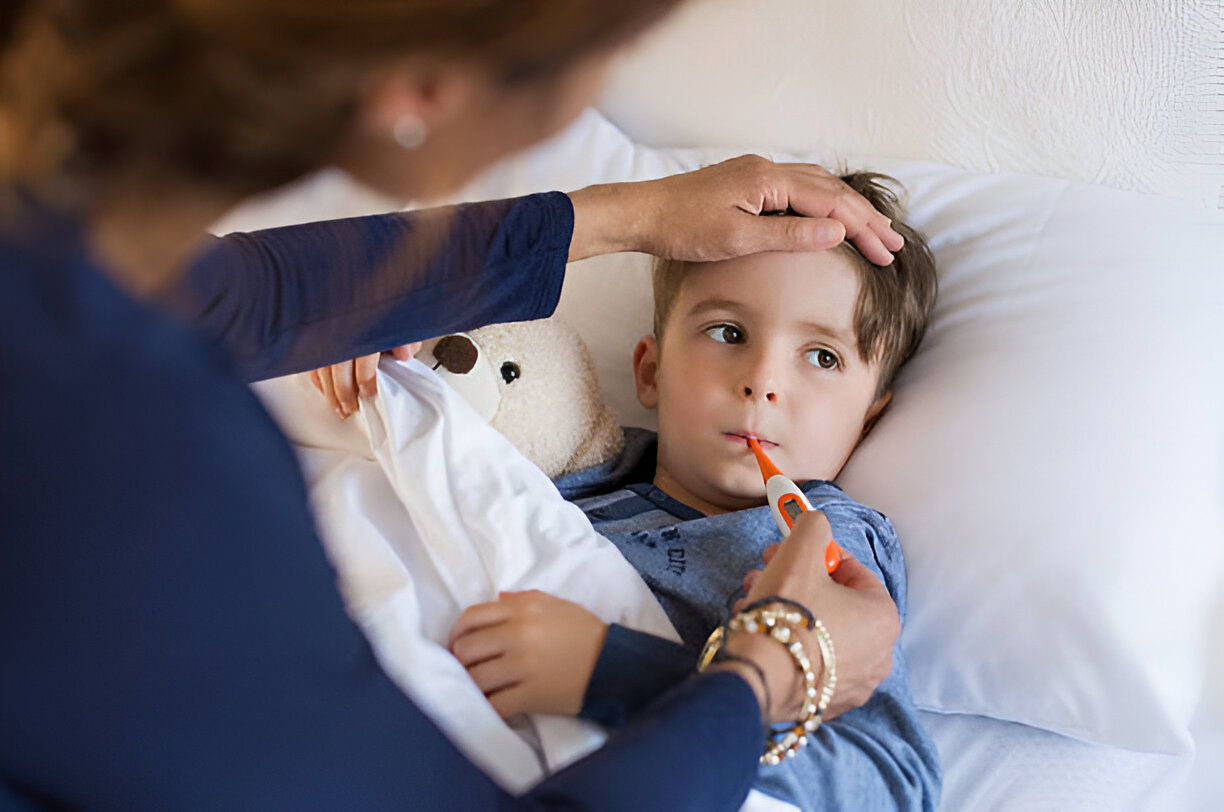
Pathology
The Pathology department plays a vital role in disease diagnosis through analysis of blood, tissue, urine, and other samples. It includes sub-specialties like histopathology, cytology, hematology, and molecular diagnostics. Accurate pathology reports guide the clinical decision-making process across all departments.

General Medicine
The General Medicine department provides diagnosis and management of common illnesses and chronic conditions such as infections, hypertension, diabetes, and fever. It acts as the first line of clinical evaluation, managing cases holistically or referring patients to relevant specialties when needed.

Clinical Psychology
Clinical Psychology deals with the diagnosis and treatment of emotional, behavioral, and psychological disorders. Services include therapy for anxiety, depression, PTSD, addiction, and counseling for personal development. Therapists apply evidence-based interventions such as CBT, DBT, and mindfulness therapy.

Audiology
Audiology focuses on diagnosing, managing, and treating hearing and balance disorders. Audiologists perform hearing tests, fit hearing aids, and provide therapy for conditions like tinnitus and vertigo. Early intervention in audiology is key to improving quality of life and communication abilities in both children and adults.
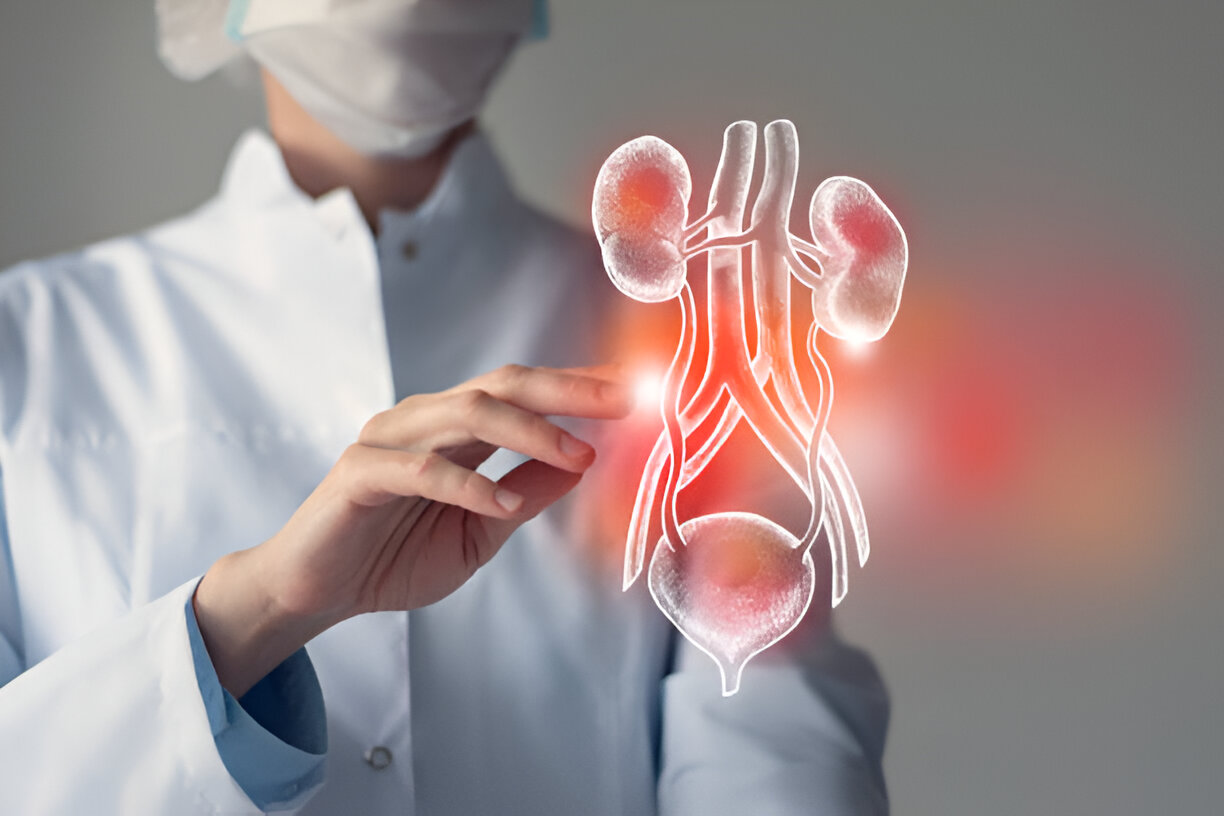
Kidney Transplant
Kidney transplant is a surgical procedure of replacing a damaged kidney with a healthy kidney from a living or deceased donor. Kidneys are the organs of the urinary system. They filter and clean the blood by removing toxic materials. They pick up the waste produced in the body, extract toxins and excess water, and process them to form urine. They also release hormones, stimulate red blood cells, and keep the body’s water content balanced. When kidneys are unable to perform these functions, toxic levels of fluid and waste accumulate in the body, leading to increased blood pressure and kidney failures, also known as end-stage renal disease, where kidneys lose 90% of the ability to function normally. In that case, the waste and toxic materials are removed from the bloodstream through dialysis and kidney transplant.
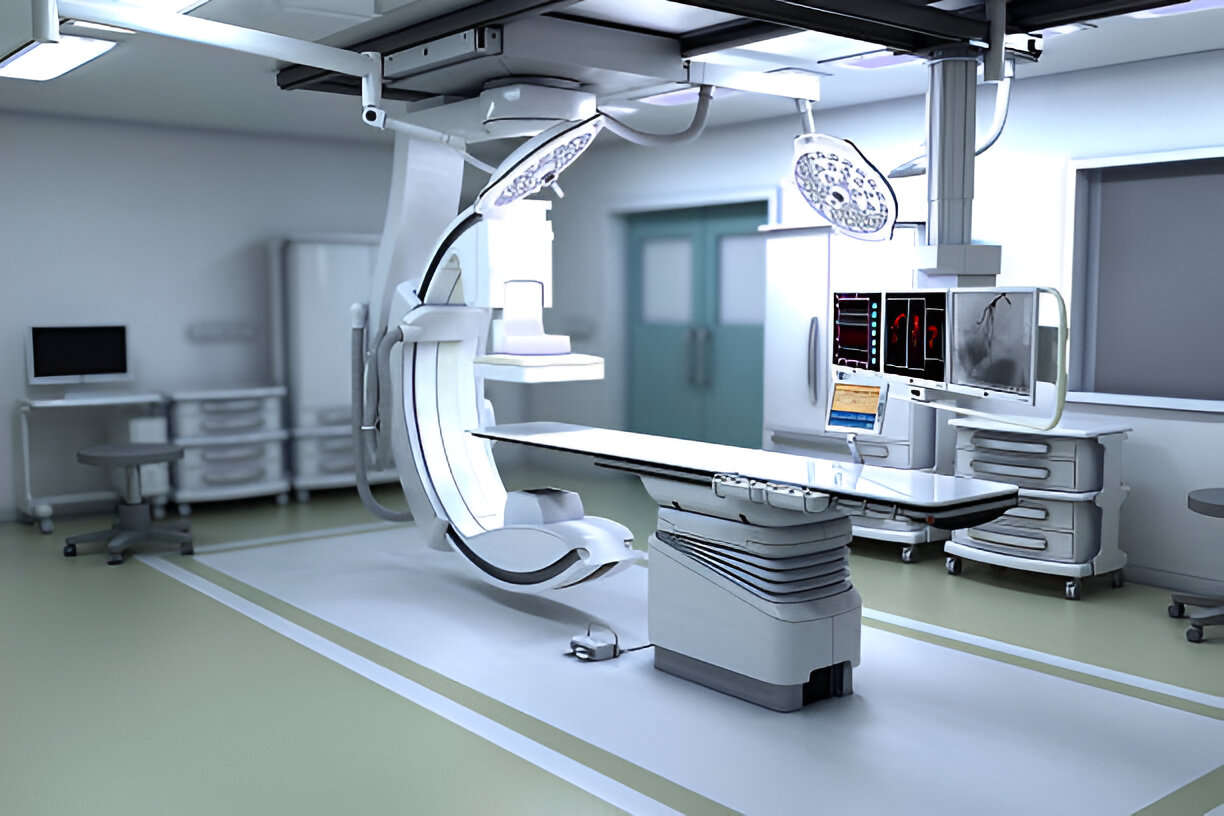
Interventional Radiology
Interventional Radiology (IR) is a medical specialty that uses advanced imaging techniques such as X-rays, MRI, or ultrasound to guide minimally invasive procedures for diagnosing and treating various diseases throughout the body. Unlike traditional open surgery, IR procedures are performed through small incisions or natural openings, resulting in less pain, bleeding, infection, and scarring. IR procedures are usually done on an outpatient basis, allowing patients to return home the same day and recover faster. IR is also more cost-effective and has lower risk of complications than other treatment options. IR can treat a wide range of conditions, from vascular diseases such as aneurysms, blockages, and cancer, such as liver, kidney, lung, and bone tumours. IR offers patients a less invasive yet highly effective alternative for diagnosis and treatment.
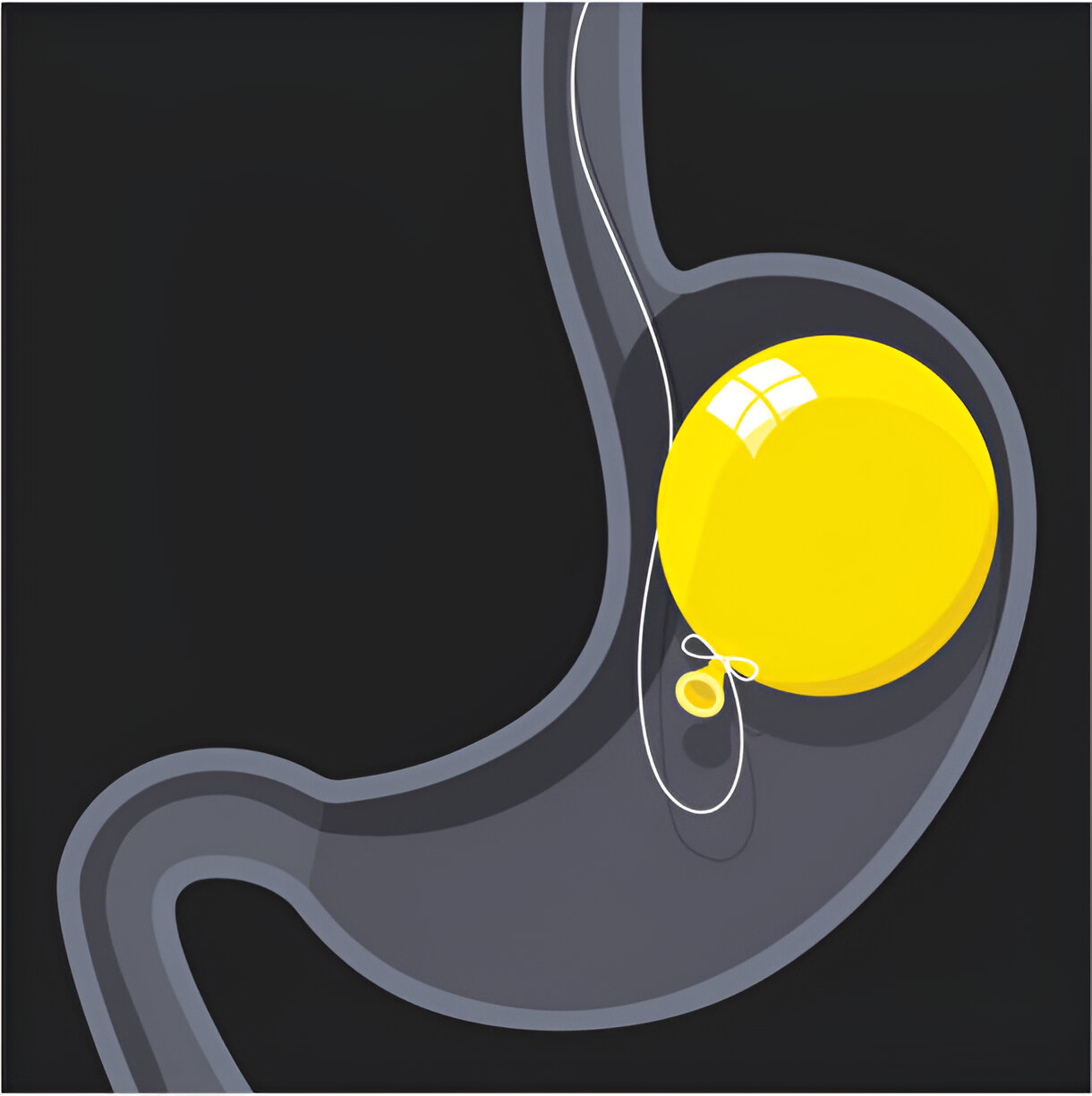
Intragastric Balloon
A non-surgical weight-loss procedure where a soft silicone balloon is inserted into the stomach endoscopically and then filled with saline. It partially fills the stomach, creating a feeling of fullness with less food. The balloon is typically left in place for 6 months and then removed. Patients may lose 10–15% of total body weight during this period. It is temporary and meant for patients who prefer non-surgical options. Lifestyle changes are still necessary for lasting results.
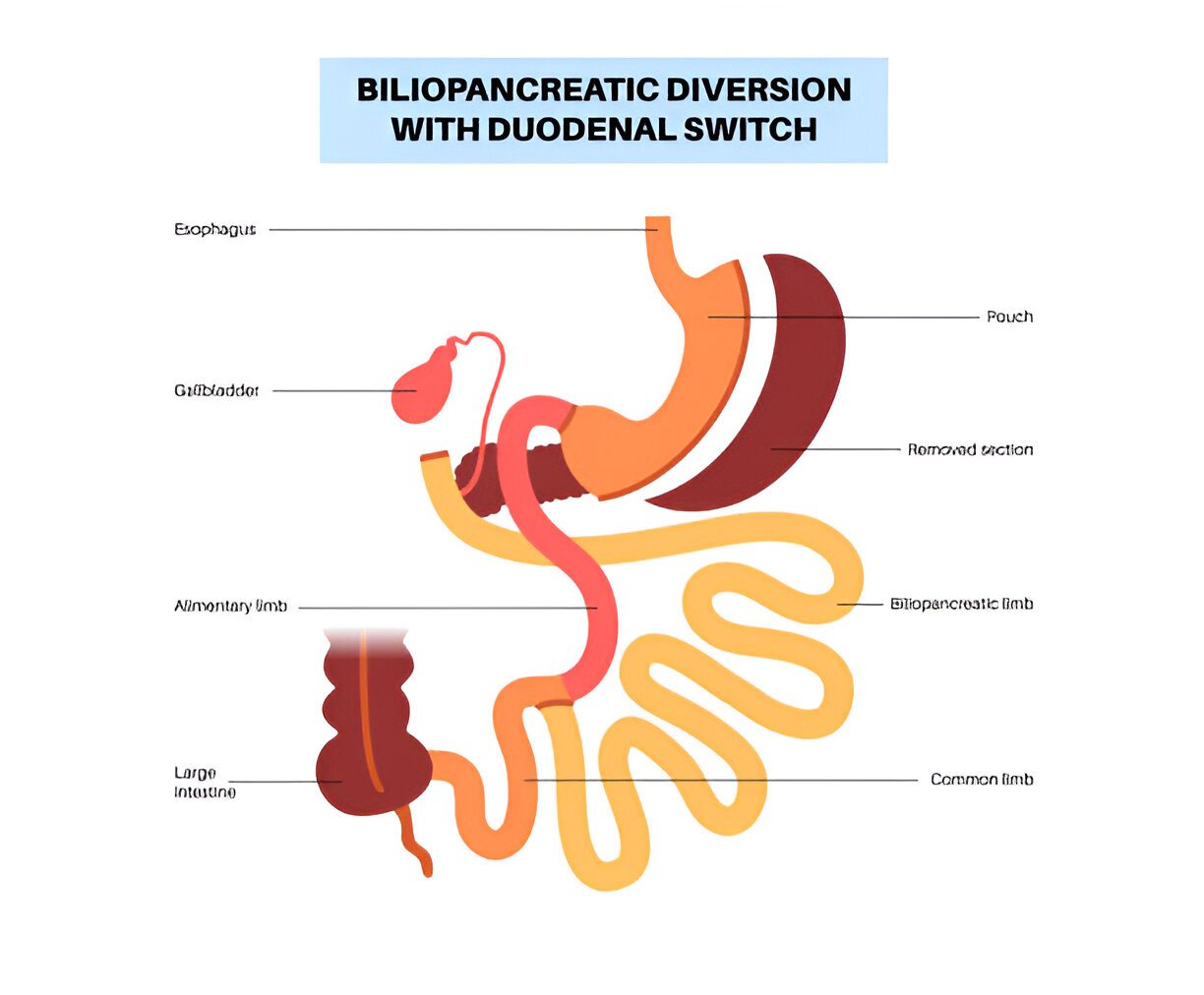
Biliopancreatic Diversion with Duodenal Switch (BPD/DS)
This complex surgery combines a sleeve gastrectomy with intestinal bypass. It greatly reduces stomach size and significantly limits calorie and nutrient absorption. Patients can lose up to 70–90% of excess weight. It is particularly effective for severe obesity and metabolic issues like diabetes. Due to high malabsorption, strict lifelong vitamin and protein supplementation is essential. It carries higher nutritional risks and requires close monitoring.
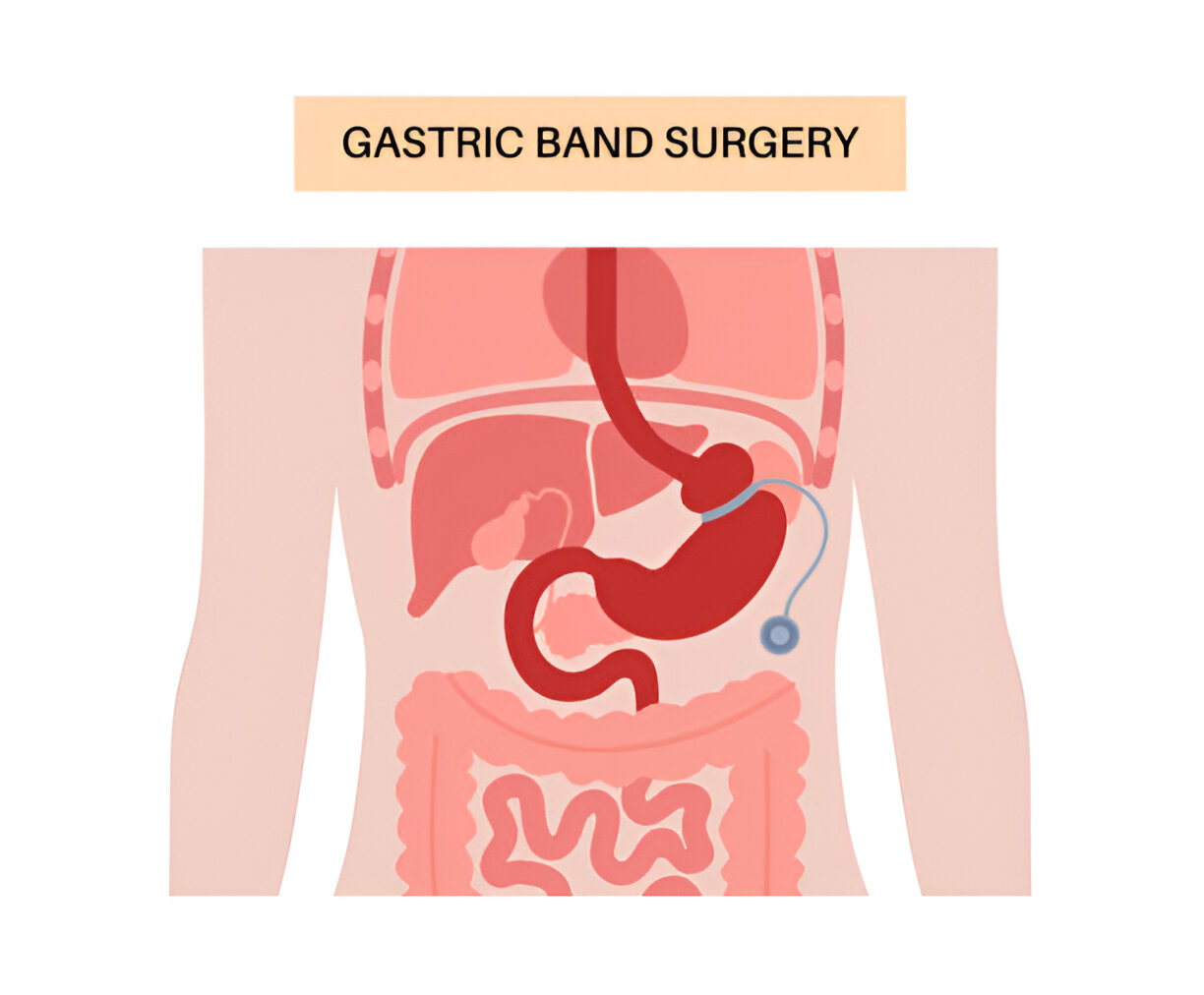
Adjustable Gastric Banding (Lap-Band)
This involves placing an inflatable silicone band around the upper part of the stomach to create a small pouch. The band can be adjusted over time to control food intake. It results in gradual weight loss (about 40–50% of excess weight). The procedure is reversible and less invasive than other bariatric surgeries. However, it requires frequent follow-up adjustments and has a higher risk of long-term complications or band removal.

Sleeve Gastrectomy
In this procedure, about 75–80% of the stomach is removed, leaving a banana-shaped sleeve. The smaller stomach limits food intake and reduces the hunger hormone (ghrelin), leading to weight loss. Patients usually lose 50–70% of excess weight within one year. It does not involve intestinal bypass, reducing nutrient deficiency risks. The surgery is irreversible but less complex than bypass. It improves obesity-related conditions significantly.

Roux-en-Y Gastric Bypass (RYGB)
This is one of the most common and effective weight-loss surgeries. The surgeon creates a small stomach pouch and connects it directly to the small intestine, bypassing most of the stomach and part of the intestine. This reduces food intake and calorie absorption. Patients typically lose 60–80% of excess weight within 12–18 months. The procedure also helps improve diabetes, hypertension, and sleep apnea. It requires lifelong vitamin and mineral supplementation.
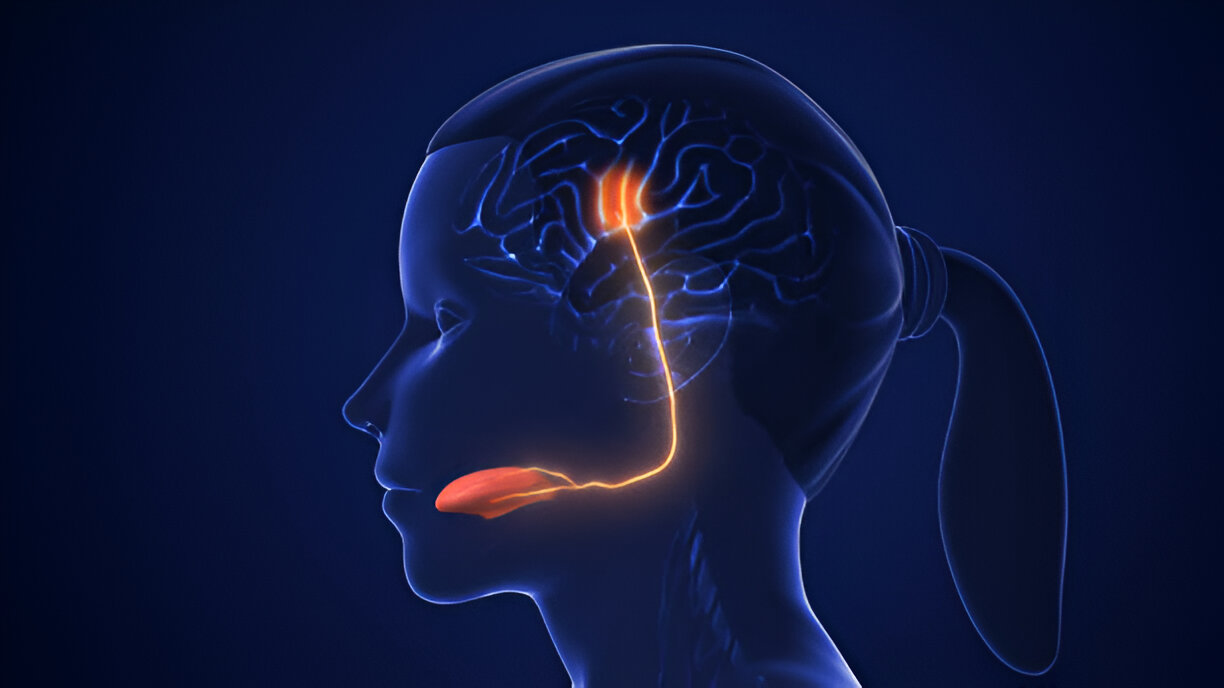
Auditory Brainstem Response (ABR)
ABR measures the electrical activity of the auditory nerve and brainstem pathways in response to sound stimuli. Electrodes are placed on the scalp while the patient listens to clicks or tones. It is often used in infants, unconscious patients, or individuals who cannot give behavioral responses. The test is non-invasive but may require sedation for young children. Results help diagnose auditory neuropathy and estimate hearing thresholds. ABR is critical for neurological hearing evaluations.

Pediatric Gastroenterologist and Hepatologist
A Pediatric Gastroenterologist and Hepatologist is a doctor who specializes in diagnosing and managing disorders of the digestive system, liver, pancreas, and nutritional issues in infants, children, and adolescents. These specialists are trained to treat a wide spectrum of conditions, including but not limited to, acute and chronic liver diseases, metabolic and genetic liver disorders, inflammatory bowel diseases (like Crohn's disease and ulcerative colitis), celiac disease, severe constipation, feeding and swallowing disorders, pancreatitis, and gastrointestinal bleeding. They use specialized tools and techniques, such as endoscopies (using a thin camera to look inside the digestive tract), biopsies, and advanced imaging, tailored to the unique needs of young patients. Pediatric gastroenterologists and hepatologists understand that children's bodies are growing and changing, so they focus on treatments that support a child's growth, development, and long-term well-being. Care is typically delivered in a child-friendly environment, often with multidisciplinary teams that include dietitians, psychologists, surgeons, and nurses to address the diverse needs of young patients. These specialists frequently provide education and support to families, guiding them through complex diseases and helping them manage long-term or chronic conditions. Continuous monitoring and follow-ups are a core part of pediatric gastroenterology and hepatology, as some diseases can significantly impact quality of life and require adjustments in care as children grow. In some advanced settings, these specialists are also involved in liver and intestinal transplants, offering pre- and post-transplant care. Ultimately, the goal of a Pediatric Gastroenterologist and Hepatologist is to ensure that children with digestive or liver problems are able to lead healthier, happier lives through accurate diagnosis, evidence-based therapy, and compassionate, child-focused care.
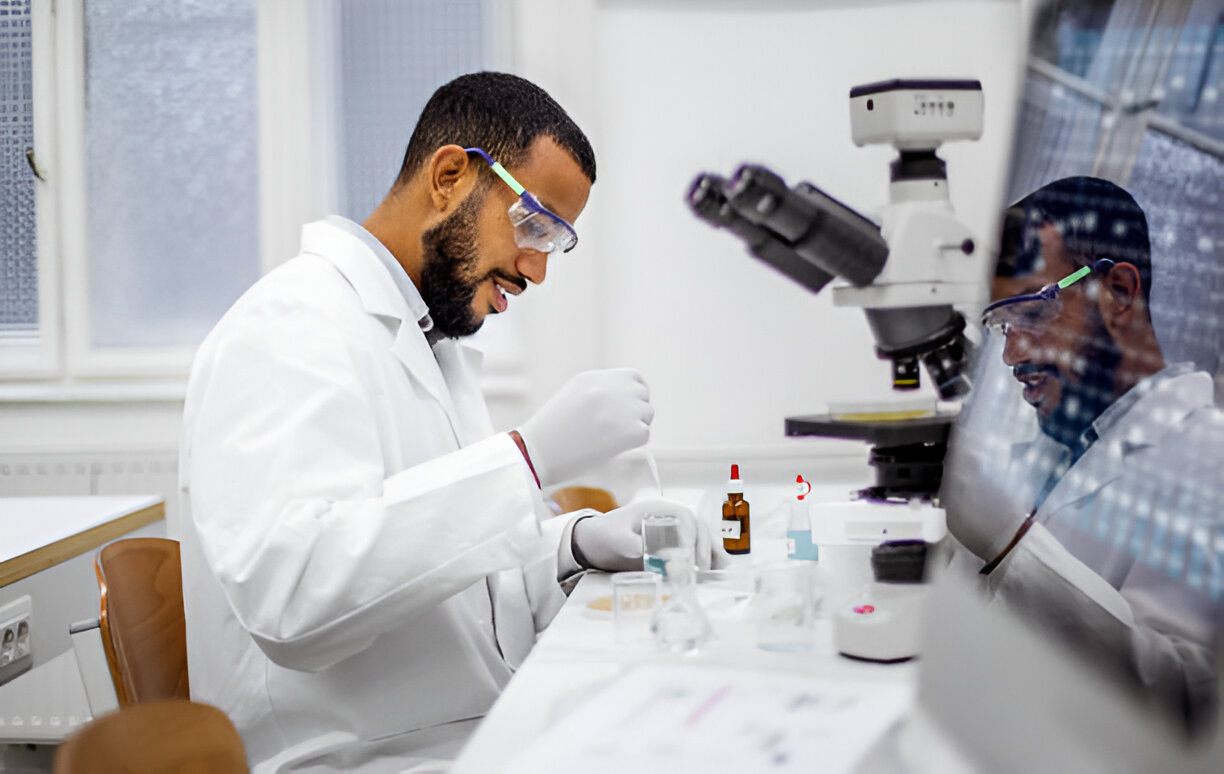
Pediatric Hematologist & Oncologist
A Pediatric Hematologist & Oncologist is a specialized physician trained to care for infants, children, teenagers, and young adults affected by blood disorders and cancers. To practice in this field, a doctor completes medical school, followed by a pediatric residency, and at least three additional years of fellowship training in pediatric hematology and oncology. These specialists diagnose, treat, and manage a wide range of conditions, including leukemias, lymphomas, brain and bone tumors, anemia, bleeding and clotting disorders, sickle cell disease, and thalassemia. Their work is highly multidisciplinary, often involving collaboration with pediatric surgeons, radiation oncologists, pathologists, psychologists, nurses, and other healthcare professionals to provide holistic, child-focused care. Pediatric hematologists/oncologists are skilled in using advanced diagnostic tools such as blood tests, bone marrow biopsies, and imaging studies to identify diseases and determine treatment plans. Treatment may include medications, chemotherapy, radiation therapy, blood transfusions, and, in some cases, bone marrow or stem cell transplants. Beyond clinical care, these specialists also support patients and families through the psychological, social, and educational challenges of chronic illness. They ensure treatments and hospital environments are tailored to children, creating supportive spaces designed to make young patients feel comfortable and safe. Regular follow-ups and long-term survivorship support are essential components, as many pediatric cancers and blood disorders require ongoing management and can impact health into adulthood. In summary, a Pediatric Hematologist & Oncologist combines expertise in pediatric medicine, blood diseases, and cancer to provide comprehensive, compassionate care aimed at improving survival outcomes and quality of life for young patients.
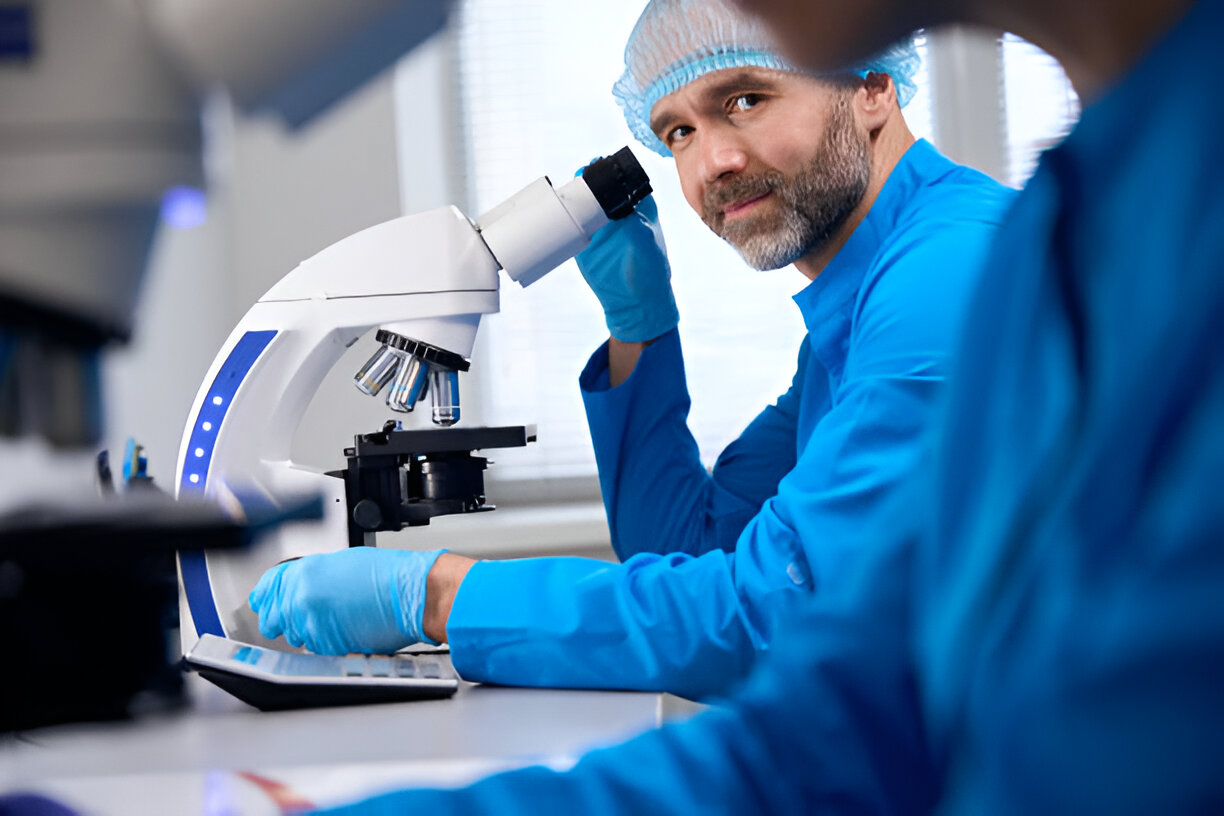
Infectious Disease Specialist
Infectious Disease Specialist, also known as an Infectious Disease Physician or simply ID Specialist. Here’s a detailed description: ✅ An Infectious Disease Specialist is a medical doctor who specializes in diagnosing and treating infections caused by bacteria, viruses, fungi, and parasites. ✅ They handle complex or unusual infections that are difficult to diagnose or treat, such as HIV/AIDS, tuberculosis, hepatitis, and tropical infections. ✅ They also manage hospital-acquired infections and infections in immunocompromised patients. ✅ These doctors often guide other physicians on the proper use of antibiotics and infection control measures. ✅ They work closely with microbiology labs to identify the causative organism and select the most effective treatment. ✅ Infectious disease specialists may also be involved in public health programs and outbreak investigations. ✅ They often treat patients both in the hospital (inpatient) and in clinics (outpatient follow-up). ✅ Their expertise is critical in preventing the spread of infectious diseases within the community and hospitals.
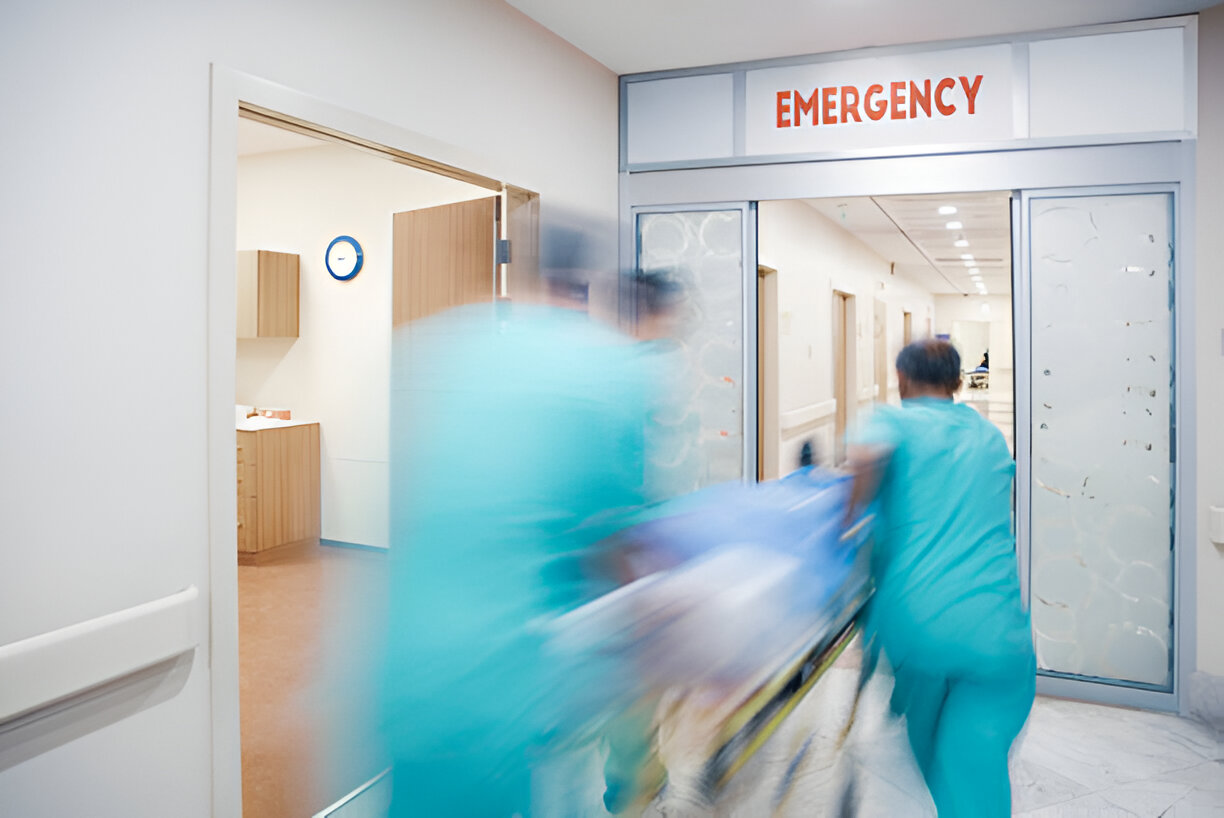
Emergency and Trauma
A doctor working in the emergency department is generally called an Emergency Medicine Doctor, also known as an Emergency Physician. Here’s a quick detailed description in 7–8 lines (as you asked): ✅ An Emergency Medicine Doctor is a specialist who provides immediate care for patients with acute illnesses or injuries. ✅ They are trained to quickly diagnose and treat a wide range of urgent and life-threatening conditions. ✅ These doctors work in the emergency department (ED), which operates 24/7 to handle all types of emergencies. ✅ They manage trauma cases, heart attacks, strokes, severe infections, accidents, and other critical conditions. ✅ Emergency physicians are skilled in performing emergency procedures like intubation, resuscitation, wound care, and more. ✅ They coordinate with other specialists and arrange for further care or hospital admission if needed. ✅ Their main goal is to stabilize patients and start immediate life-saving treatment. ✅ They need strong decision-making skills, quick thinking, and the ability to work under pressure.

Physiologist
Physiology is the scientific study of functions and mechanisms in a living system. As a subdiscipline of biology, physiology focuses on how organisms, organ systems, individual organs, cells, and biomolecules carry out chemical and physical functions in a living system. According to the classes of organisms, the field can be divided into medical physiology, animal physiology, plant physiology, cell physiology, and comparative physiology. Central to physiological functioning are biophysical and biochemical processes, homeostatic control mechanisms, and communication between cells. Physiological state is the condition of normal function. In contrast, pathological state refers to abnormal conditions, including human diseases. The Nobel Prize in Physiology or Medicine is awarded by the Royal Swedish Academy of Sciences for exceptional scientific achievements in physiology related to the field of medicine.
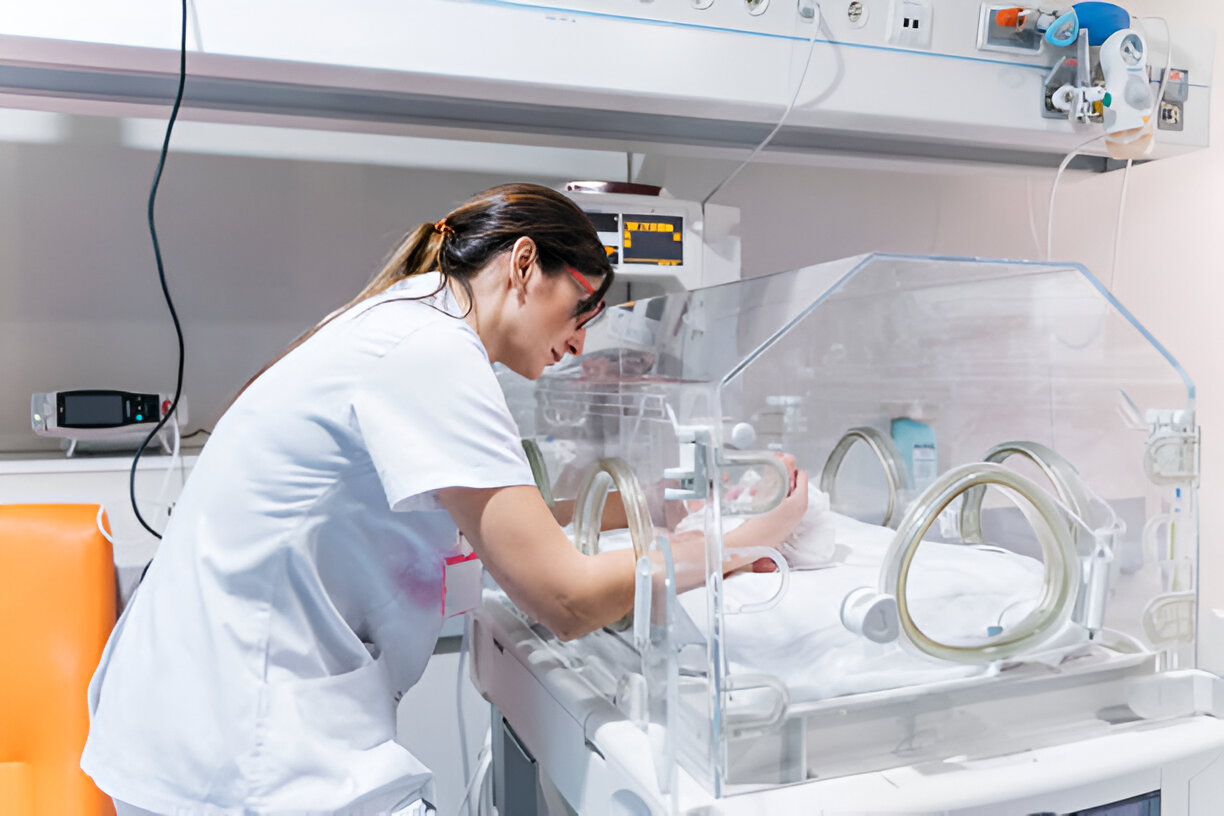
Neonatologist
A neonatologist is a healthcare provider who specializes in premature babies or newborns with high-risk or complex health conditions. If your baby is born premature or with an illness or congenital disability, a neonatologist will be the provider managing your baby’s care. A neonatologist may be involved in your prenatal care if the health condition is diagnosed before birth. In some cases, neonatologists are in the delivery room to treat newborn babies immediately after they’re born.

Clinical Psychologists
Clinical Psychologists are mental health professionals who diagnose and treat emotional, mental, and behavioral disorders. They help people struggling with issues like depression, anxiety, stress, addiction, and severe psychiatric conditions. Using psychological tests and clinical interviews, they assess a patient’s mental health and develop personalized treatment plans. Clinical psychologists mainly use psychotherapy (talk therapy), cognitive-behavioral therapy (CBT), and other evidence-based approaches to help patients cope and heal. Unlike psychiatrists, they usually do not prescribe medication (except in a few regions where they have special training and permission). They work in hospitals, mental health clinics, private practices, and academic settings. Clinical psychologists aim to improve a person’s emotional well-being and support them in leading healthier, more fulfilling lives.

Speech-Language Pathologists
Speech-Language Pathologists (SLPs) are healthcare professionals who diagnose and treat communication and swallowing disorders. They help patients of all ages — from infants with feeding difficulties to adults recovering from strokes or brain injuries. SLPs work on improving speech clarity, language understanding, voice quality, and social communication skills. They also address problems like stuttering, delayed speech development, and cognitive-communication disorders. In addition, they help patients with swallowing difficulties (dysphagia) through specialized therapy techniques. SLPs collaborate closely with doctors, audiologists, and occupational therapists in hospitals, schools, and private clinics. Their goal is to help individuals communicate effectively and safely eat or drink, greatly enhancing their quality of life.
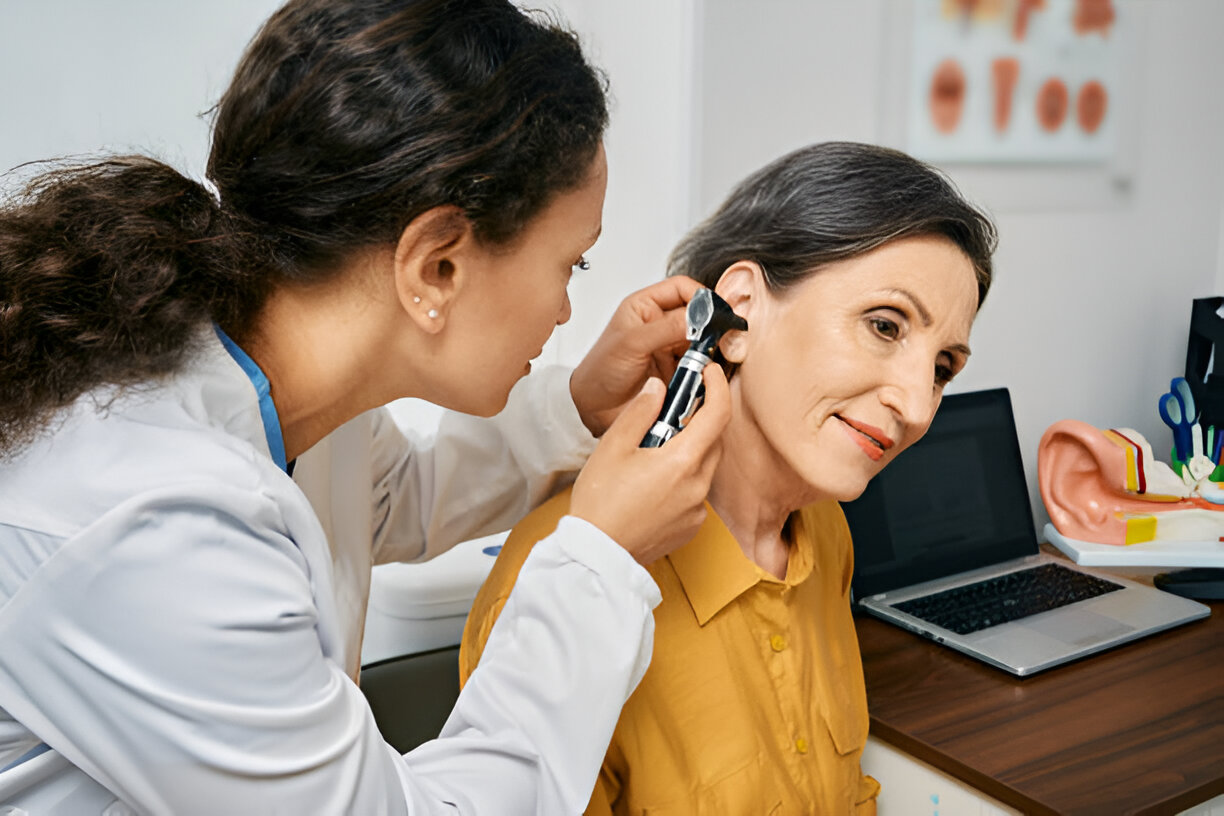
Audiologists
Audiologists are healthcare professionals who specialize in diagnosing, managing, and treating hearing and balance disorders. They work with patients of all ages — from newborns to elderly — to assess hearing loss and related problems. Audiologists perform hearing tests, fit and manage hearing aids, and provide auditory rehabilitation therapy. They also help patients with tinnitus (ringing in the ears) and issues related to dizziness or vertigo. Unlike ENT doctors (otolaryngologists), audiologists do not perform surgeries but focus on non-surgical treatment and management. They often work in hospitals, private clinics, schools, and rehabilitation centers. Audiologists play a crucial role in improving communication abilities and overall quality of life for people with hearing or balance challenges.
This is the first content
Testing Testimonial 1. Testing Testimonial 1 Testing Testimonial 1. Testing Testimonial 1Testing Testimonial 1Testing Testimonial 1. Testing Testimonial 1 Testing Testimonial 1Testing Testimonial 1Testing Testimonial 1.
At AfroNile Healthcare, we are committed to delivering healthcare services that meet the highest international standards. Our comprehensive approach ensures that every aspect of your medical journey is thoughtfully planned and seamlessly executed. From travel logistics and accommodation to medical appointments, we handle every detail to provide a stress-free experience. Partnering with world-class medical facilities and renowned healthcare professionals, we offer cutting-edge treatments in a safe and compassionate environment, tailored to meet your unique needs. Beyond treatment, our dedicated post-treatment support services ensure continuity of care, empowering you to achieve the best possible outcomes and a smooth recovery. Choose AfroNile Healthcare for a truly exceptional medical tourism experience—where your health, comfort, and peace of mind are always our top priorities. Let us redefine what it means to receive world-class care abroad.
We accept a variety of payment methods, including wire transfers, credit cards, and online payment systems. Our team will guide you through the process to ensure a smooth transaction.
No, AfroNile Healthcare ensures complete transparency. All costs are discussed upfront, and we provide a detailed breakdown of expenses.
Yes, we provide detailed cost estimates after an initial consultation with the medical team. This includes treatment costs, hospital charges, and additional services such as accommodation and transportation.
Many of our partner hospitals accept international health insurance. We assist in verifying coverage and coordinating with your insurance provider to facilitate smooth processing.
Patients can save up to 70-80% on treatments in India compared to costs in countries like the US, UK, or Australia. AfroNile Healthcare ensures cost transparency with no hidden charges.
Home
Hospitals
Doctors
Departments
About Us
Contact Us
Our Partners
Patient Stories
Blog
FAQs
Email: info@afronilehealthcare.com ,
Query@afronilehealthcare.com
Address: 153 , Hauz Rani , Opp. Max Hospital , Saket , New Delhi - 110017
© 2026 Afronile Healthcare. All Rights Reserved.
Developed and maintained by Blue Brain Technologies Pvt.Ltd